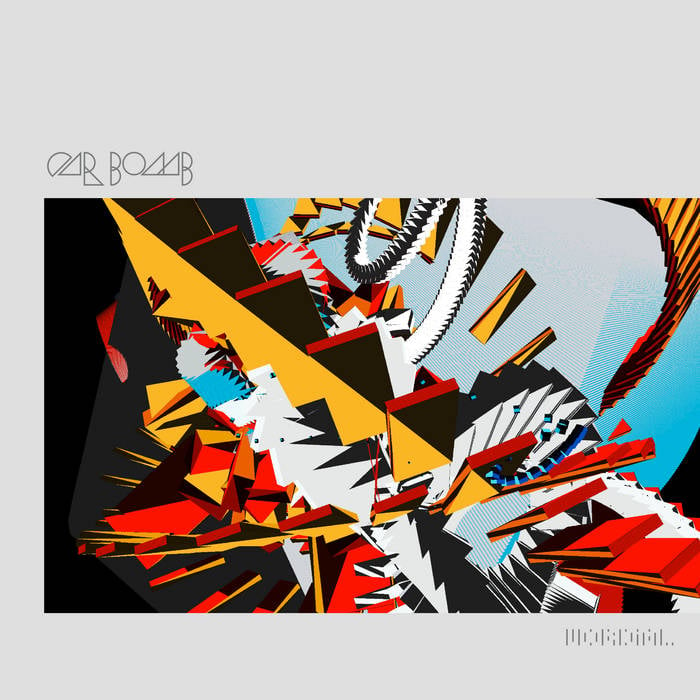I understand it’s controversial, but people who don’t put the final comma in a list before “and” which then groups the final two items as one erroneously.
Also, when people put a space before a comma. I’m not sure why they do that, but it’s cemented in some people’s brains who speak fluent English from childhood onward.
The Oxford comma! I am also a fan.
I sign this as well. It’s literally a character difference and there is no ambiguity at all. There is no downside.
I see where you’re coming from. In school we were also taught to NOT put a comma before ‘and’ if it’s a list. I also didn’t quite get it, and found it weird. However, if you consider ‘and’ and a comma serving the same purpose (linking the elements in a list), then putting a comma before ‘and’ would just make either of them redundant. I’m not saying I prefer either of the two, but at least there is a reason to it.
The issue comes in when you consider there are times you’d want to group things. Example:
I would like a toolbox with 4 drawers: Nuts and bolts, screws, washers and chisels.
Oh, if anything, unless it’s in the last element, it’s easier to see paired items in the list ( ‘,’ -> next element; ’ and ’ -> still the same element, with ‘and’ inside). When it’s the last element, it’s indeed ambiguous. And then there’s /u/hakase 's comment:
“They went to Oregon with Betty, a maid, and a cook”, where Betty is the maid mentioned.
When people pretend they cannot understand a sentence becuse of a grammatical error.
If you honestly can’t parse out what a person is trying to say because they left out a comma or misspelled a word or God forbid used the wrong “their” perhaps you need to work on reading skills.
I’m sorry, but, without commas, this is just a mess, and I’m not going to torture myself into reading it.
Your comment, takes 5 minutes to read with that many commas
Or they can’t figure out typos where one letter is just an adjacent key and the sentence makes it obvious.
The brain generates a characteristic signal (from a sub-region of Broca’s area) when it detects grammatical errors—but it generates an identical signal when you’re listening to a grammatical sentence and need to re-parse it partway through. I think this latter case is actually the real purpose of the signal: every time it triggers, your brain is warning you that you need to stop and check the sentence again even if the meaning seems unambiguous. So the “pretending they can’t understand you” reaction could just be a reflexive response to that signal (i.e., the brain is telling them it’s confused even if there’s no logical reason it should be).
A wall of text with no punctuation.
I get hung up on i.e. vs e.g. I’m not sure this counts as grammar though… I also understand the meaning is not very known so many people confuse the two but I wish it was overall well understood so that the message is very clear.
E.g. is used when enumerating examples, it doesn’t have to include all possibilities. Like saying “for example…”
I.e. is to demonstrate exactly what we are talking about. It’s like saying “by that I mean this”.
Abberant apostrophes (and missing ones).
Sentences that miss out words for no reason: e.g. “A couple things” vs. “A couple of things”.
Confusing envy and jealousy.
The above is a personal list; I don’t get judgemental about others’ grammar but I do cringe internally.
Are you jealous people who aren;t bothered by those errors?
Well done on that semi-colon: really pushing my buttons!
The apostrophe thing really grinds my gears. Especially “it’s” vs “its”. It’s not very hard, “it’s” is a contraction meaning “it is”. Otherwise, it’s possessive. This homonym is its own worst enemy.
I hate that “jealousy” has devoured “envy”. “Language is fluid”, they always say, but those two words have very different meanings!
Mine is petty, but is due to having an internal voice when I read. When commonly used words are misspelled, like using loose instead of lose, I ‘hear’ it pronounced as spelled and it drives me nuts. Homophones like their and there don’t annoy me nearly as much.
I also mispronounce words learned from reading that don’t follow normal phonetic patterns that I’m used to, like melee, so I do understand why people mix up loose and lose. It is still painful to read.
Pronouncing familiar as fermiliar.
Ooooooh, mine is pronouncing onion as ungyin
Resistance to shifting grammar annoys me.
Educated linguists know really well that language changes over time. It is natural and expected. There are also living valid variations of grammar outside standardized “book” grammar.
People who are zero educated just go with whatever.
People who are half educated juuuust enough to be smartasses but not enough to be smart will say shit like “I don’t know, can you?” in response to “Can I go to the bathroom”. Or pretend an emphasized negation - aka double negative - can be interpreted as a positive.
Regarding double negatives, I get what you are saying, but they absolutely can be interpreted as a positive - this is easily proven by simply reversing one of them, and they can be reversed because they are after all negatives.
But if the speaker’s meaning is clear then of course it’s rude and incorrect to misinterpret them.
I feel like there’s a gray area though where some constructions may be genuinely ambiguous which way the speaker meant (since a double negative as negative by definition means the opposite of what the words would mean otherwise)
Some of mine in no particular order:
- Comma splices.
- Using apostrophes to make abbreviations plural. It’s UFOs, not UFO’s. This goes for decades, too. It’s 1920s, not 1920’s.
- Putting punctuation in the wrong place when parentheticals are involved (like this.) (Or like this).
- Same for quotations. Programmers in particular seem averse to putting punctuation on the inside where it usually belongs.
- Mixing up insure, ensure, and assure.
- Using ‘that’ where ‘who’ is more appropriate. For example, “People that don’t use their blinkers are annoying.”
You do something ON purpose or BY accident, you don’t do anything ON accident!
“On the weekend”. I think that fits too.
Eh, you can have things you need to do on the weekend, but you can also have things you need to do by the weekend.
Quite happy to be wrong but my original point was it’s grammatically incorrect. I think so anyway.
“Then” when it should be “than”.
People starting sentences with “I mean”, and no prior context.
“What” and “which” being used interchangeably.
Oh that’s a good one. I can feel my blood pressure rising.
People who use “can” to mean either “can” OR “can’t” and expect you to work out what they mean from context.
I absolutely detest the practice of saying the “the proper nouns of the world,” i.e the Tom Brady’s of the world. Or the Empire State buildings of the world. First off, it’s a proper noun. The implication of a proper noun is there is only one specific instance. Second, that’s diminishing to the proper noun used by lowering that status to the mean. Last, it’s usually used in a sports context to unnecessarily group up a bunch of players even though we already know the context of why they’re being grouped up for comparison. It’s just fucking dumb. It really grinds my gears.
Oh, great, now I’m going to notice this one too. Thanks for causing me more consternation.
I actually came across one of mine in this thread where someone was talking about an unrelated one of theirs: The plural of a word that ends with “st” is “sts”, not also “st”. If you write it like that because that’s how you say it, it’s because you’re also saying it wrong.






